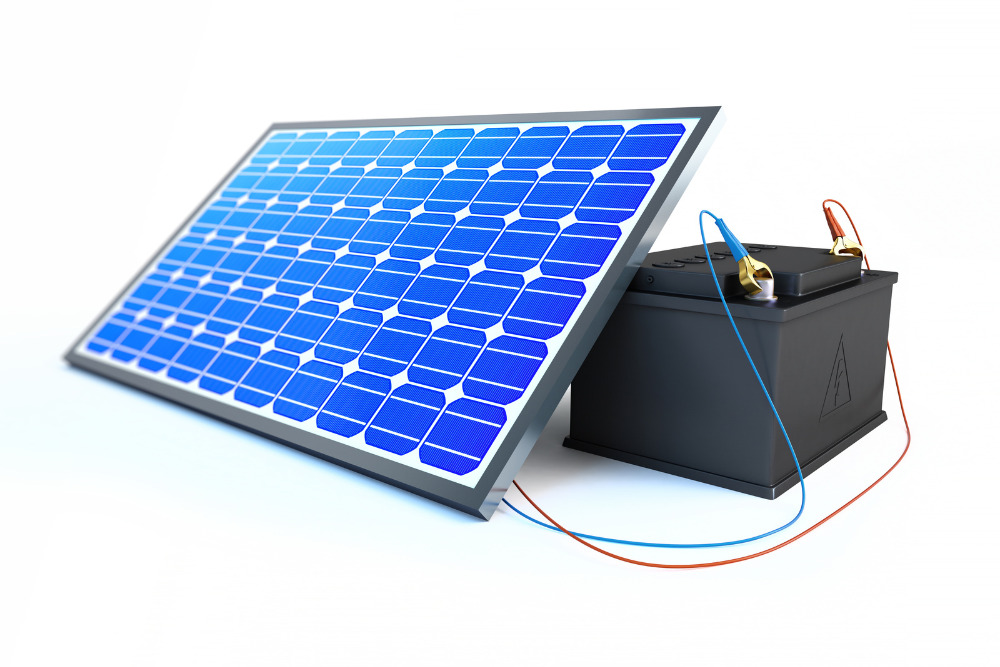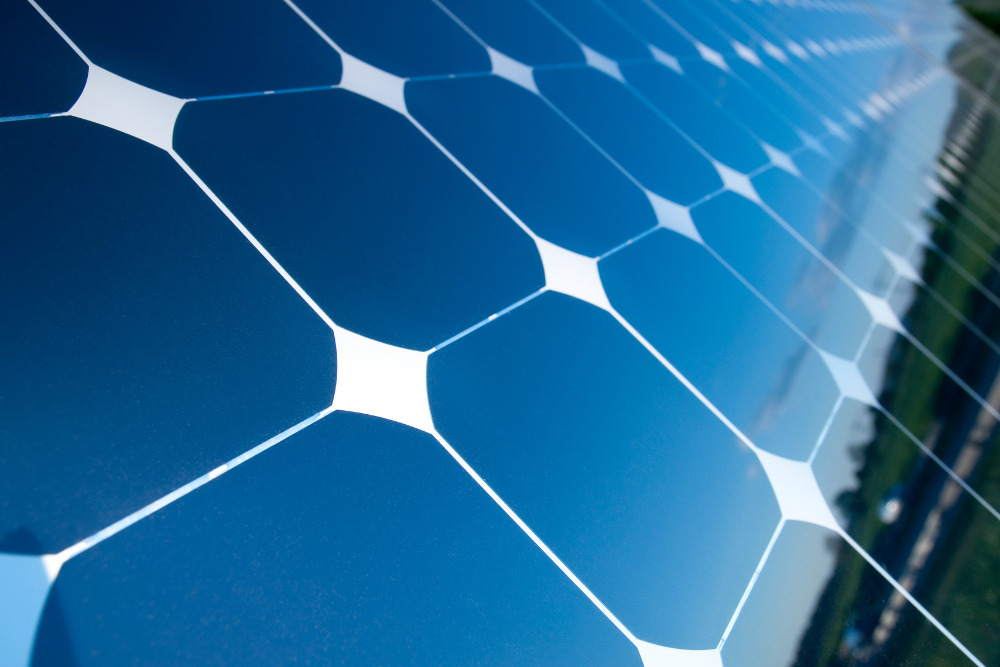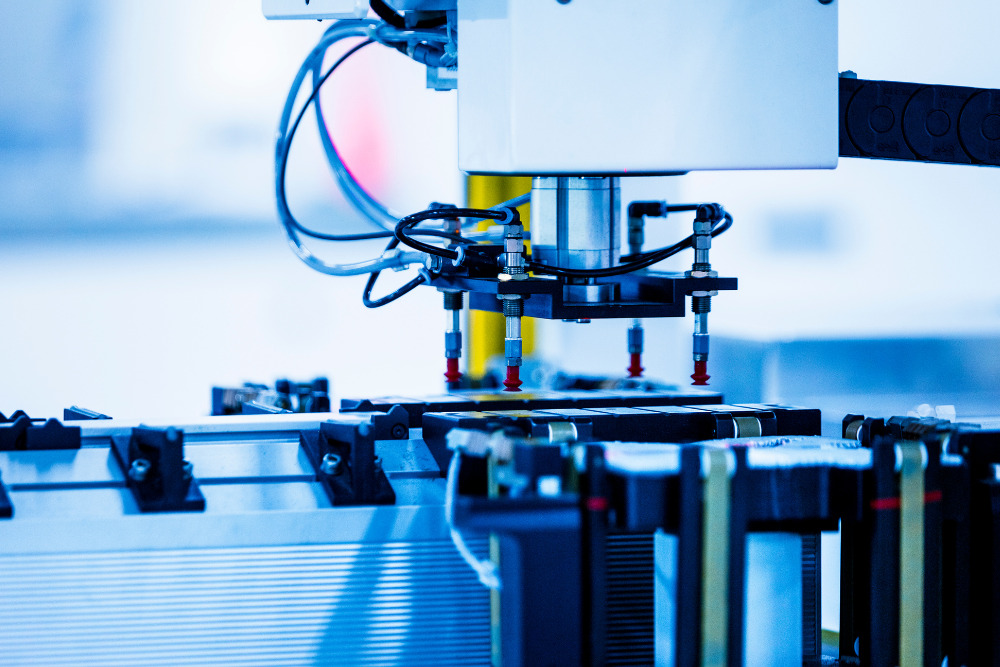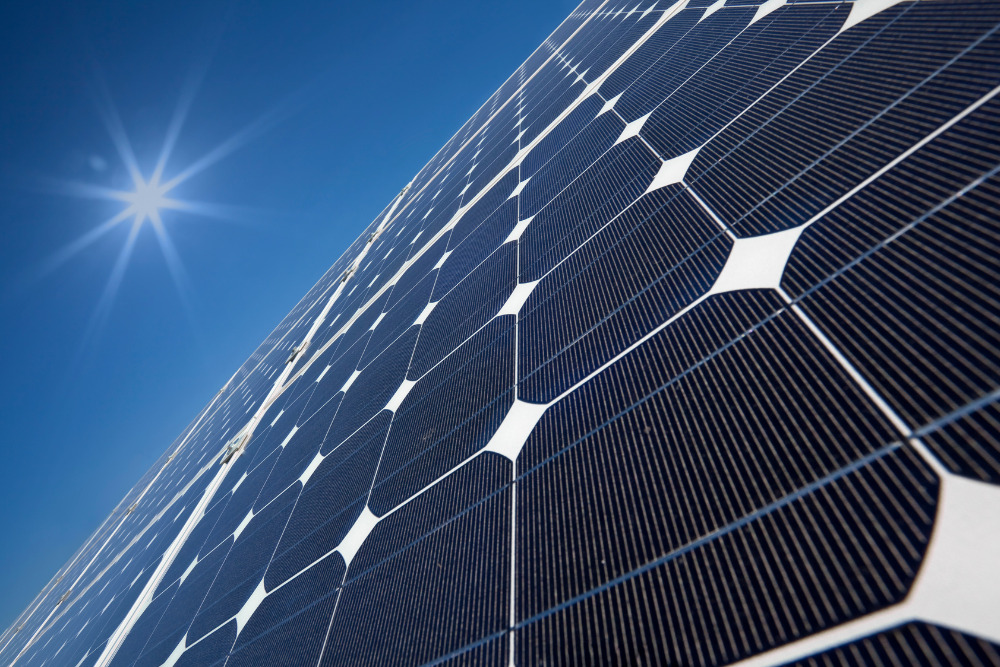
For businesses considering solar, consult with solar installation professionals, review recent industry reports, and compare specifications and warranties from different manufacturers to choose the right panels for you.
One of the best places to start is understanding more about solar panel efficiency ratings and what they mean to you. There are several types of solar panels to choose from, and the best one for your business will depend on your specific needs.
How Efficient Are Commercial Solar Panels?
Solar cell technology has experienced significant advancements in recent years, making it an excellent choice for reducing electric bills in residential and commercial applications. The National Renewable Energy Laboratory reports that solar panel efficiency has improved dramatically over the last decade.
The efficiency of solar panels refers to their ability to convert sunlight into usable electricity. It is typically measured by the percentage of the total energy from sunlight the panel can convert. The higher the energy production percentage, the more efficient the panel.
Solar panel power ratings are measured in watts. Standard test conditions (STC) of 25 degrees Celsius and an irradiance level of 1000W/m2 are used. Although these are standard test conditions, real-world circumstances can vary greatly, creating differences in efficiency.
When the outside temperature differs from STC, it increases or decreases power output. This change is known as the power temperature coefficient, and it’s one of the reasons there can be a wide variation in solar panel efficiency depending upon the conditions and installation location.
The average efficiency of a commercial solar panel can also vary depending on the type of panel technology used.
The efficiency ranges for the most efficient solar panels on the market today are as follows:
- Monocrystalline Solar Panels. Monocrystalline silicon panels are the most efficient among commercially available options. Their efficiency can range from about 15% to 22%. Some premium models may achieve efficiencies above this range.
- Polycrystalline Solar Panels. These panels are slightly less efficient than monocrystalline panels, with efficiency typically ranging from 13% to 18%.
- Thin-Film Solar Panels. These are generally less efficient than crystalline silicon panels but can be more cost-effective and versatile. Their efficiency typically ranges from 10% to 12%.
- Bifacial Panels. These panels can capture sunlight from both sides, increasing their overall efficiency. Bifacial panels can achieve efficiencies similar to monocrystalline panels, often in the range of 15% to 20% or more.
When determining which solar energy system is best for you, additional factors should also be considered. Site-specific space, amount of sunlight, upfront cost, tax incentives, and installation requirements can make a significant difference when choosing a solar panel system.
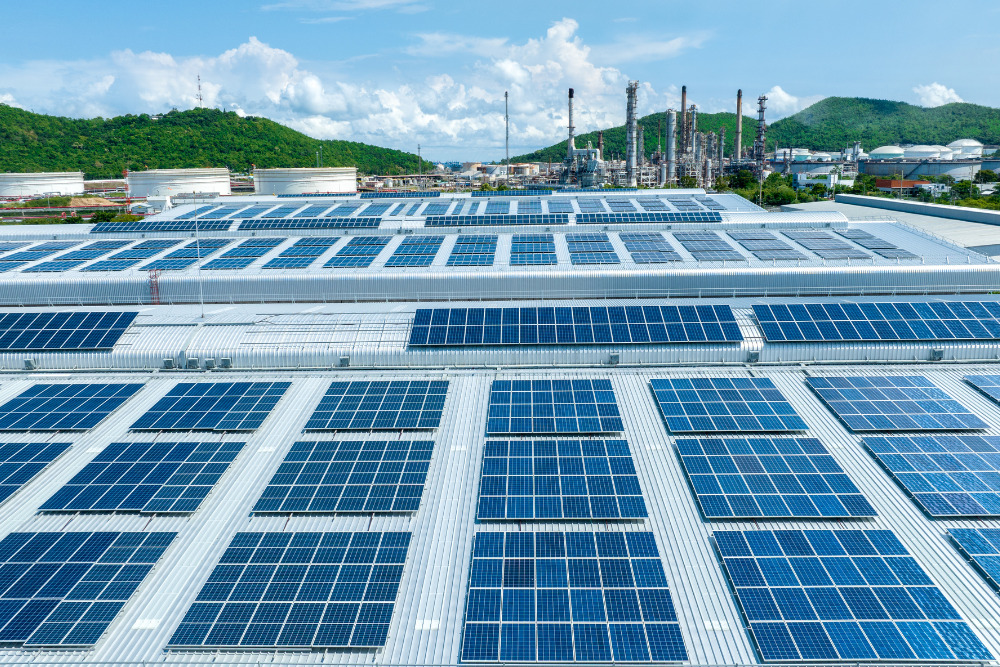
What’s The Difference Between Commercial And Residential Solar Panels?
Commercial and residential solar panels utilize the same technology but are designed for different applications.
This means there are some key differences between the two. Among those differences are:
Size and Capacity
Commercial Panels. Commercial solar panels are larger with a higher capacity than residential panels. They are designed to have a higher power output to meet the higher energy demands of commercial buildings, warehouses, factories, and other large-scale applications.
Residential Panels. Residential solar panels are smaller and have a lower capacity than commercial panels. They are designed to cater to the energy needs of individual homes and small-scale installations.
Efficiency
Commercial Panels. Commercial panels often prioritize cost-effectiveness and reliability over achieving the highest efficiency levels. They may have slightly lower efficiency compared to some premium residential panels because a business has a larger installation space.
Residential Panels. Residential panels emphasize achieving higher efficiency, as homeowners often have limited roof space and want to maximize the energy production from their available area.
Design and Aesthetics
Commercial Panels. Commercial solar systems have a more utilitarian design, as functionality and cost-efficiency tend to take precedence.
Residential Panels. Residential solar panel systems offer more design options and aesthetics to blend in with the home's appearance. Some solar panel manufacturers provide sleeker profiles and color options to cater to homeowners’ preferences.
Installation and Mounting
Commercial Panels. Commercial solar panels are typically installed on larger, flat roofs or open areas. Mounting systems for commercial installations need to accommodate higher wind loads and structural considerations due to the panels' size and the installation's scale.
Residential Panels. Solar panel installation in a residence often occurs on sloped roofs. The mounting systems for residential installations are designed to be more adjustable to various roof angles and orientations.
Cost and Financing
Commercial Panels. Commercial solar installations have higher upfront costs due to the higher number of panels and overall system capacity. However, businesses may have access to various tax incentives, grants, and financing options to help offset these costs.
Residential Panels. Residential solar installations are generally smaller in scale and may have relatively lower upfront costs. Homeowners can also use various financial incentives, such as tax credits and net metering programs, to make the investment more affordable.
Regulations and Permits
Commercial Panels. Commercial solar power system installations require additional permitting and regulatory considerations due to their larger scale and potential impact on local infrastructure and grid systems.
Residential Panels. Residential solar installations also require permits, but the process might be slightly more straightforward due to their smaller size and lower impact.
Overall, while the fundamental technology behind both commercial and residential solar panels is the same, their design, capacity, installation, and considerations differ based on the specific requirements of the application for which they are intended.
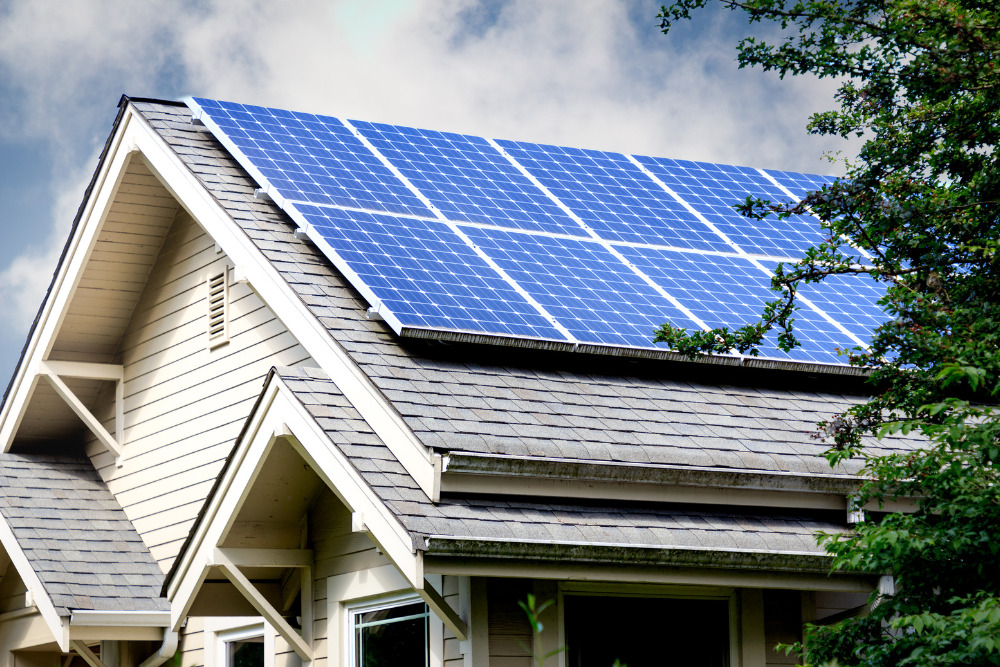
Top 5 Best Commercial Solar Panels
It’s important to note that what’s considered the “best” commercial solar panels can vary based on your specific needs, such as available space, budget, and efficiency requirements.
There are, however, certain manufacturers that currently dominate the market.
SunPower
Best High-Efficiency
SunPoweri is known for producing high-efficiency solar panels with their Maxeon technology. They have been at the forefront of solar innovation and have achieved some of the highest efficiency levels in the industry.
Their customizable panels are often used in both residential and commercial installations.
- 440w Max Power Output
- 23% Photovoltaic Module Efficiency
- 25-Year Performance warranty
Longi
Most popular
Longi produces one of the best and most popular panels on the market. They specialize in high-efficiency monocrystalline panels and have won several industry awards.
- 450w Max Power Output
- 20.7% Photovoltaic Module Efficiency
- 30-Year Performance Warranty
Hanwha
Hanwha Q Cells is a global solar energy company that produces several types of solar panels, including those for commercial use. They are known for their high-quality engineering and solid performance. As a plus, this South Korean manufacturer has invested in American manufacturing, and their panels are made in America.
- 485w Max Power Output
- 21% Photovoltaic Module Efficiency
- 25-Year Performance Warranty
Canadian Solar
Best aesthetics
Canadian Solar is one of the largest solar panel manufacturers in the world. They offer a range of solar panels suitable for commercial applications, often focusing on balancing efficiency, cost, and reliability.
Their Monocrystalline Perc cells also have a sleek design with all-black, anti-reflective glass panels. These panels can absorb more energy than they reflect and generate 30% more energy than competitors.
- 540w Max Power Output
- 21% Module Efficiency
- 25-Year Performance Warranty
Trina Solar
Best all around
Trina Solar is one of the oldest and best-established in the solar industry, with a strong reputation for producing reliable and cost-effective solar panels. They offer a variety of panel options suitable for commercial installations.
Their panels have everything you need in a commercial solar panel: impressive cell efficiency, durability, long lifespan, performance, and a reasonable price point.
- 480w Max Power Output
- 20.1% Module Efficiency
- 25-Year Performance Warranty
What’s considered the best solar panels can be debated due to the variability and external influences.
It’s advisable to consult with solar installation professionals, review recent industry reports, and compare specifications and warranties from different manufacturers before deciding. A reputable company will also provide you with a free quote on installation, offer a robust product warranty, and be able to speak to the maintenance and longevity of the system.
